You are using an outdated browser. Please upgrade your browser to improve your experience.
Card Accounts
Business Accounts
Other Accounts and Payments
Tools and Support
Personal Cards
Business Credit Cards
Corporate Programs
Prepaid Cards
Personal Savings
Personal Checking and Loans
Business Banking
Book And Manage Travel
Travel Inspiration
Business Travel
Services and Support
Benefits and Offers
Manage Membership
Business Services
Checking & Payment Products
Funding Products
Merchant Services
It appears that JavaScript is either disabled or not supported by your web browser. JavaScript must be enabled to experience the American Express website and to log in to your account.

Redemption of American Express ® Travelers Cheques
Travelers Cheques have been a timeless addition to the world traveler’s carry-on for over 130 years. While new Travelers Cheques are no longer issued, your Cheques remain backed by American Express and have no expiration date.
REDEEM WITH AMEX ANYTIME
NO EXPIRATION DATE
24/7 CUSTOMER SERVICE

BACKED BY AMERICAN EXPRESS

HOW TO REDEEM
Travelers Cheques can no longer be purchased but can be redeemed in several convenient ways. Here’s how:
REDEEM WITH AMERICAN EXPRESS TRAVEL RELATED SERVICES COMPANY, INC.
REDEEM ONLINE
Quickly and securely redeem your Travelers Cheques online .
Call American Express Customer Service at 1-800-221-7282 or find additional contact numbers based on your location to redeem over the phone.
DEPOSIT WITH YOUR BANK
Confirm whether your bank allows account holders to deposit Travelers Cheques. Fees may apply.
EXCHANGE FOR LOCAL CURRENCY
Travelers Cheques can be exchanged worldwide. Find exchange locations . Fees may apply.
TRAVELERS CHEQUES EXCHANGE LOCATOR
Find the nearest exchange location.
Service Center
Have more questions?
Here are some common scenarios and what to do.
UNDERSTANDING TRAVELERS CHEQUES
Keep your Cheques secure until you’re ready to redeem.
Protect yourself in case of loss or theft by signing on the upper signature line.
Record the serial numbers and keep them in a safe place when you travel.
Keep your Cheques tucked away and hidden like you would cash.
When the time comes, sign your Cheque on the lower signature line in sight of the person accepting it.

Find documents you may need in case of claiming inherited Cheques, lost or stolen Cheques, and more.
DOCUMENTATION
Additional documents may be required based on the claim type. Typical documents include:
- Valid Photo ID (Passport, Driver's License or Government Issued ID)
- Copy of the Voided Travelers Cheque(s)
- Refund Details
UPLOAD DOCUMENTS
Once you have gathered the required documents and filled out any required documents and forms, upload here. Clear images will help expedite processing.
UNABLE TO UPLOAD?
If you’re unable to upload your completed documents, you can send hard copies directly to American Express .

INHERITED CHEQUES
How to redeem your inherited Travelers Cheques if the original owner is deceased or incapacitated.
1. OPEN A CLAIM
Call American Express Customer Service at 1-800-221-7282 or find additional contact numbers based on your location to begin a claim over the phone.
2. IDENTIFY & LOCATE REQUIRED DOCUMENTS
List of required documents and forms can be found here . You’ll need these to submit your claim.
3. UPLOAD REQUIRED DOCUMENTS
Be sure to upload clear images for faster processing.
4. IF YOU’RE UNABLE TO UPLOAD
As an alternative to submitting online, you can also mail hard copies of your documents to American Express .
*Travelers Cheque Encashment service is provided by American Express Travel Related Services Company, Inc.

Can I buy Travelers Cheques?
Travelers Cheques are no longer issued and so cannot be purchased.
Where can I redeem my Travelers Cheques?
There are thousands of foreign exchange partners in countries around the world where you can exchange your American Express Travelers Cheques for local currency. You can find places to redeem your Travelers Cheques using " Find Exchange Locations ". It may also be possible to redeem your Travelers Cheques directly for goods and services. Check first, though, with the merchant. American Express does not approve the use of its products, or any services related to its products, in the following territories: Crimea, Donetsk, and Luhansk Regions of Ukraine, Cuba, Iran, North Korea, Syria, Russia and Belarus.
Can I redeem my Travelers Cheques directly with American Express?
Yes, you can redeem your Travelers Cheques directly with American Express Travel Related Services Company, Inc. online . Alternatively, you can call American Express Customer Service at 1-800-221-7282 to register a redemption claim. You can find additional contact numbers based on your location. We may have to contact you with questions regarding your claim or to request additional information.
How do I redeem my Travelers Cheques?
You can redeem your Travelers Cheques directly with American Express Travel Related Services Company, Inc. Please refer the “How to Redeem” section above. Alternatively, simply present the Cheque at an eligible foreign exchange partner or merchant location. Make sure the acceptor watches while you countersign the Cheque on the lower signature line. Photo identification may be required. We strongly recommend you retain and carry your original Cheque purchase receipt with you when you travel. Commission charges may apply and can vary by country or exchange partner. Exchange limits may apply due to local regulations and exchange policies.
What happens if I sign my Travelers Cheques in the wrong place, or if my signatures don't match?
Acceptance of Travelers Cheques is based on the acceptor watching the customer sign the Cheque on the lower signature line, and then comparing that signature with the original signature on the upper signature line. The acceptor must observe the customer signing the Cheque. If the signatures are a reasonable match, the Cheque should be accepted. Photo identification may be required at the discretion of the acceptor. As always, if the acceptor is unsure, they should call an American Express Travelers Cheque Customer Service Center .
Is there a fee to cash Travelers Cheques?
Commission charges may apply and can vary by country and/or exchange partner. Before you travel, we recommend that you find the most convenient Travelers Cheque exchange locations using the Find Exchange Locations .
What happens if my Cheques are lost or stolen?
Lost or stolen Travelers Cheques may be refunded.* Please call Customer Service at 1-800-221-7282 or find the additional contact numbers for your current location. Have your recorder serial numbers on hand when you call.
* Terms & Conditions and restrictions apply. Identification and proof of purchase required.
How are Gift Cheques cashed?
When cashing a Gift Cheque, the recipient should fill out the "pay to the order of" line and countersign the Gift Cheque in the lower corner with the acceptor watching. If you encounter diffiulties in cashing a Gift Cheque in the United States, please encourage the merchant to call American Express for instructions at 1-800-221-7282 . If you are located outside of the U.S., you can find additional contact numbers to provide the merchant based on your location.
Can I redeem my Gift Cheques directly with American Express?
Yes, you can redeem your Gift Cheques directly with American Express Travel Related Services Company, Inc. online . Alternatively, you can call American Express Customer Service at 1-800-221-7282 to register a redemption claim. You can find additional contact numbers based on your location. We may have to contact you with questions regarding your claim or to request additional information. You can also find places to redeem your Gift Cheques using Find Exchange Locations . There also may be restrictions on the currency and method of redemption and the value of Gift Cheques that can be redeemed.

Still Need Help?
Call American Express Customer Service 24/7 at 1-800-221-7282 or find additional contact numbers based on your location.
American Express stopped issuing Travelers Cheques, so they’re no longer available for purchase. Support is available by phone and the American Express website for customers to redeem valid Travelers Cheques. Travelers Cheques remain backed by American Express and have no expiration date.
Royal Mail strikes are expected in November.
We advise all our customers to order their travel money this month to reduce any inconvenience caused from any upcoming delays or backlogs next month.
Compare Exchange Rates
- Currency Converter
- Convert British Pounds To Australian Dollars
- Convert British Pounds To Euro
- Convert British Pounds to Japanese Yen
- Convert British Pounds To Turkish Lira
- Convert British Pounds To US Dollars
- Convert Australian Dollars To British Pounds
- Convert Euro To British Pounds
- Convert Japanese Yen To British Pounds
- Convert Turkish Lira To British Pounds
- Convert US Dollars To British Pounds
Found yourself stuck with travellers cheques? Here's how you can exchange your travellers cheques to cash.

JANUARY 2021
Before we start talking about exchanging your travellers cheques into cash, let's start at the beginning.
What exactly is a travellers cheque? According to the Oxford dictionary, it is defined as "a cheque for a fixed amount that may be cashed or used for payments abroad after endorsement by the holder's signature". Traveller's cheques used to be available in several currencies such as US dollars, Canadian dollars, pounds sterling, Japanese yen, Chinese yuan and Euros.
Travel Money
I have British Pounds

1 GBP = Your exchange rate

1 GBP = Real exchange rate
- Transfer Type
- Low cost transfer - 369.39 GBP fee Send money from your bank account
- Advanced transfer - 369.39 GBP fee Send from your GBP account outside the UK
The more you order the lower the fee
I want to buy

These rates are available only when you pay online - rates in branch will differ
Last updated on
Source: compareholidaymoney.com

*We capture the exchange rates being offered by airports and high street providers once a month and calculate what spread they are taking off the live interbank rate. We then compare that to what rates we are offering to calculate the savings you can make if you use us.
*Your potential saving has been calculated using our exchange rate and the most expensive provider's rate in the market at a given point in time.
They were seen as a safer alternative to carrying physical cash around and at one point in time, very popular amongst tourists. Restaurants, bars, shops and most businesses would happily accept them as a travellers cheque could never "bounce". The issuer will unconditionally guarantee payment of the face amount. For reference only, the organization that produces a traveller's cheque is known as the issuer. The bank or financial institution that sells the travellers cheques is the agent of the issuer and the traveller who buys the cheque is the purchaser. The shop or restaurant you go into and use the cheque is known as the merchant.
The most well known issuers of travellers cheques were Thomas Cook, Bank of America and American Express. However, since the 1990s there has been a great decline in their use as cash, pre paid cards, ATMs, multi currency cards and credit cards have taken over when spending money abroad.
Now it is very difficult to use travellers cheques abroad. In fact most businesses will not accept them and they have indeed become an obsolete.

How can I exchange my travellers cheques?
Even though these cheques can no longer be used in shops when you go on your next holiday, they have no expiry date and there are still some ways that you can cash them in but just expect a poor exchange rate when you do exchange them for cash.
1) Your local Post Office
Luckily, you can still walk down your high street and into your local Post office to exchange your travellers cheques into cash. The exchange rate you do this at will probably be poor and there may even be associated fees but this is at least a quick and simple solution. Remember to take your proof of ID with you, this could be your photographic driver's licence or passport.
2) Visit your local bank
A few banks still allow account holders to deposit Travellers Cheques to their personal bank account and so it may be worth checking with your bank first to see if you can exchange your travellers cheques with them directly and they deposit the GBP equivalent directly into your current account. Once again, if you go in person to your local bank branch will be asked to present photographic ID that includes your signature for sign off of these cheques.
3) Go online
It is also worth visiting the issuer's website directly to get guidance on redeeming your travellers cheques.
For example, if your travellers cheque has American Express logo on them, you can click on this link American Express Travelers Cheques. The page provides you with your nearest location to exchange your Travellers cheques in person and also provides an option to redeem them online.
Alternatively, if your travellers cheques are issued by Travelex, Thomas Cook, Mastercard or Interpayment Visa you can use their encashment form found here encashment-form-newv5.pdf (travelex.co.uk)
Generally speaking, exchanging your travellers cheques into cash requires you to print out and complete a form from the issuer. You will be asked to complete the details of the currency denominations of your travellers cheques and also to keep a record of their respective serial numbers. Additionally, since this process is done online and not over the counter in front of a clerk, they will request a copy of your proof of identification which also includes your signature. This can be a photograph drivers license or a passport. For larger amounts they may even request a proof of address - so a recent utility bill or bank statement.
Make sure you have the above at hand when filling these forms out to make things quicker for you
What are the alternatives to taking travellers cheques?
Travel money is a very easy and cheap way to spend money abroad. To find the best exchange rate, simply go online and compare exchange rates and any associated fees that foreign exchange providers are offering.
Some foreign exchange companies may say no commission and no fees on top but may in fact hide their fees within the exchange rate. So, instead of purchasing your travel money at the real exchange rate, you may be offered something away from that rate and this is the spread which incorporates their fees.
Other companies are easier to buy travel money online from as they are transparent. The Currency Club for example, offers their best exchange rates on any currency and additionally gives you access to review the live interbank exchange rate before you confirm your transaction giving you complete transparency. You can then easily compare how much you can save. The company will deliver the travel money directly to your home, fully insured by 1pm using with you selecting the day that suits you best.
Credit cards (pre paid and others)
There has been a significant increase in travellers using their cards abroad. Of course a pre paid currency card helps travellers to budget, as you top up only the amount you wish to spend. Additionally, like travellers cheques they can be a safer option in the event that your card is stolen.
However, the problem arises when you visit a place that does not accept cards. In which case you are at the mercy of taking cash out of ATMs when abroad and this can work out to be very expensive.
Not only may you get charged withdrawal fees each time, but the exchange rate may also be very poor since ATMs are also charging you for the convenience of having cash on tap!
The safest and most sensible solution is to always have some travel money and perhaps one other alternative. This way, it's easier to stick to a budget and it means you will not need to waste your time or money visiting ATMs when abroad.
Buy Traveller Cheques
As an alternative to cash, we offer the best currency exchange rates on travellers cheques. They are safest ways to carry money around. In the event that the travellers cheques are lost or stolen you can report this and receive a replacement immediately.
Make sure you sign each travellers cheque when you receive them from us and keep the serial numbers in a safe place before you travel so you are protected in the event that your cheques are lost or stolen. When you want to make a purchase or exchange them for cash, just sign the travellers cheque in the designated area in the presence of the acceptor, along with your passport (you may be required to show your passport when you decide to use them).
Then you're good to go!

We can buy back your leftover euros so you can always transact at the best GBP to EUR exchange rate with no hidden fees.
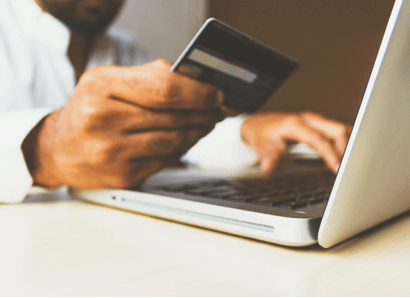
Send money abroad in Euro (EUR) at low cost with our best exchange rates
Get your rate on the move.
Download our app to place travel money orders, send funds abroad and get alerts on the go.

- Search Search Please fill out this field.
What Is a Traveler’s Check?
- How It Works
- Where to Get Traveler's Checks
- Where to Cash Traveler's Checks
- Pros and Cons
- Alternatives to Traveler's Checks
The Bottom Line
- Personal Finance
Traveler's Check: What It Is, How It's Used, Where to Buy
Julia Kagan is a financial/consumer journalist and former senior editor, personal finance, of Investopedia.
:max_bytes(150000):strip_icc():format(webp)/Julia_Kagan_BW_web_ready-4-4e918378cc90496d84ee23642957234b.jpg)
Investopedia / Eliana Rodgers
A traveler’s check (sometimes spelled "cheque") is a once-popular but now largely outmoded medium of exchange utilized as an alternative to hard currency and intended to aid tourists. The product is typically used by people on vacation in foreign countries. It offers a safe way to travel overseas without the risks associated with losing cash. The issuing party, usually a bank, provides security against lost or stolen checks.
Beginning in the late 1980s, traveler’s checks have increasingly been supplanted by credit cards and prepaid debit cards.
Key Takeaways
- Traveler’s checks are a form of payment issued by financial institutions such as American Express.
- These paper cheques are generally used by people when traveling to foreign countries.
- They are purchased for set amounts and can be used to buy goods or services or be exchanged for cash.
- If your traveler's check is lost or stolen it can readily be replaced.
- Once widely used, traveler’s checks have largely been supplanted today by prepaid debit cards and credit cards.
How Traveler’s Checks Work
A traveler’s check is for a prepaid fixed amount and operates like cash, so a purchaser can use it to buy goods or services when traveling. A customer can also exchange a traveler’s check for cash. Major financial service institutions issue traveler’s checks, and banks and credit unions sell them, though their ranks have significantly dwindled today.
A traveler’s check is similar to a regular check because it has a unique check number or serial number. When a customer reports a check stolen or lost, the issuing company cancels that check and provides a new one.
They come in several fixed denominations in a variety of currencies, making them a safeguard in countries with fluctuating exchange rates , and they do not have an expiration date. They are not linked to a customer’s bank account or line of credit and do not contain personally identifiable information, therefore eliminating the risk of identity theft. They operate via a dual signature system. You sign them when you purchase them, and then you sign them again when you cash them, which is designed to prevent anyone other than the purchaser from using them.
Many banks, hotels, and retailers used to accept them as cash, although some banks charged fees to cash them. However, with the rising worldwide use of credit cards and prepaid debit cards—such as the Visa TravelMoney card, which offers zero liability for its unauthorized use—it is getting much harder to find institutions that will cash traveler’s checks.
History of Traveler’s Checks
James C. Fargo, the president of the American Express Company, was a wealthy, well-known American who was unable to get checks cashed during a trip to Europe. In 1891, a company employee, Marcellus F. Berry, believed that the solution for taking money overseas required a check with the signature of the bearer and devised a product for it. American Express and Visa still use the British spelling on their products.
Where to Get Traveler's Checks
Companies that still issue traveler's checks today include American Express , Visa , and AAA . They often come with a 1% to 2% purchase fee. AAA now offers members pre-paid international Visa cards instead of paper checks.
In the U.S., they are available primarily from American Express locations. You can also buy traveler's checks online from the American Express website, but you need to be registered with an account. Visa offers traveler's checks at Citibank locations nationwide, as well as at several other banks.
American Express, Visa, and AAA are among the companies that still issue traveler’s checks.
Where to Cash Traveler's Checks
If you want to convert your traveler's checks into cash (instead of spending them directly), you can often deposit them normally at your bank. Many hotel or resort lobbies will also provide this service to guests at no charge. American Express also provides a service to redeem traveler's checks that they issue online to be deposited into your bank account. The redemption application online should take less than 15 minutes to complete.
Advantages and Disadvantages of Traveler's Checks
Traveler's checks are handy for tourists who do not want to risk losing their cash or having it stolen while abroad. Because traveler's checks can be reported lost or stolen and the funds replaced, they provide peace of mind. This was particularly a concern before credit cards and ATMs were widespread and affordable worldwide for most travelers. At the same time, these paper checks are now a bit outdated and come with a fee to purchase, making them potentially more expensive and cumbersome than using plastic or electronic payments.
Replaced if lost or stolen
Widely accepted around the world
Convenient to use
They don't expire
Must have the physical check to use it
Incurs a fee to purchase
Limited number of issuers today
Alternatives to Traveler's Checks
The most obvious alternative is to use a credit or debit card issued by a bank that works worldwide and charges low or no foreign exchange fees on purchases or ATM withdrawals. If your bank doesn't allow for this or charges high fees, then prepaid travel cards are the modern version of traveler’s checks. They allow you to get local currency from ATMs and make purchases with merchants—effectively eliminating the need for traveler’s checks.
Prepaid cards are not linked to your bank account, which prevents anybody from draining your checking account if the card gets lost or stolen—and you can’t go into debt. Credit cards offer similar (or better) protection, but you might not want to use your everyday card abroad. By using a dedicated travel card, you avoid spreading your card numbers around, which means you can be less vigilant about monitoring your accounts when you get back home. Visa and MasterCard both offer prepaid cards designed for use abroad. Those cards are available online, through travel agents, and at banks or credit unions.
Travel cards should feature low ATM fees, technology that lets you operate like a local in foreign countries, emergency cash when you lose the card, and “zero liability” fraud protection. That said, prepaid cards can be expensive, so you need to compare fees against your other cards to decide whether or not a travel card makes sense.
For U.S. citizens living abroad for extended periods, maintaining checking and other bank accounts in the United States provides several advantages, and many checking accounts are friendly for foreign transactions .
Where Do You Buy Traveler's Checks?
You can buy still buy traveler's checks from American Express, Visa, and a handful of other financial institutions. To buy them, visit a location or check the website of an issuing institution. You may need a photo ID in order to set up an account.
How Do You Cash Traveler's Checks?
Many hotels, resorts, and currency traders will cash traveler's checks in exchange for local currency. However, with the rising prevalence of credit and debit cards fewer locations cash traveler's checks.
What Do You Do With Traveler's Checks?
Traveler's checks are a secure way of carrying money while abroad. Many businesses in the tourism industry will cash traveler's checks, and they can also be deposited into a bank account. Because the checks can be easily replaced, they have a lower risk of theft or loss. However, traveler's checks have fallen out of favor due to the increased convenience of credit cards and prepaid debit cards.
Traveler's checks were once a popular way to carry money while vacationing abroad. They are sold in fixed denominations, and can be used for purchases or cashed like an ordinary check. Traveler's checks can be easily replaced, making them less risky than carrying large amounts of cash. However, they have fallen out of favor due to the convenience of using credit or debit cards.
Sparks, Evan. “ Nine Young Bankers Who Changed America: Marcellus Flemming Berry .” ABA Banking Journal, June 26, 2017.
Time Magazine. " Travel (April, 1956): The Host with the Most ."
American Express. " Travelers Cheques ."
:max_bytes(150000):strip_icc():format(webp)/_How-does-a-prepaid-card-work-960201_Final2-a914cdbc7901430d80de45153461af0a.png)
- Terms of Service
- Editorial Policy
- Privacy Policy
- Your Privacy Choices
Compare rates and fees for your money transfers.
Read our range of money transfer and banking guides.

Reviews and comparisons of the best money transfer providers, banks, and apps.
Helpful tools to ensure you get the best rates on money transfers.
A Guide to Travellers Cheques
Once a foreign currency staple, this form of prepaid funds has existed for hundreds of years, designed as a way to allow payment from one person to another across currencies. As the financial services sector continues to shift to online solutions , we look at how, where and why travellers cheques are used, as we discuss the relevance of this form of currency.
What are travellers cheques?
The history of the travellers cheque spans as far back as 1772 when the first of its kind was issued by the London Credit Exchange Company, in the UK. Over the coming centuries the concept became popularised on a global scale, with major banks and financial institutions adopting this form of travel money in the 20th century. American Express became the largest issuer of travellers cheques and continues to offer these services to customers to this day.
A safe and convenient method of payment for anyone travelling to foreign territories, these pre-printed cheques hold a fixed amount which can be used worldwide across a range of currencies. Designed to facilitate payments from one person to another, using different currencies, travellers cheques were initially seen as a more practical way for individuals to carry their spending money.
Travellers cheques had their heyday in the late 20th century, reaching peak popularity in the mid-90s, before alternatives such as credit and debit cards became more widely available and easier to manage financial transactions. It was reported in 2018 that a mere 1.5% of Britons use travellers cheques, a rapid decrease over the course of two decades.
How do you use travellers cheques?
When you first receive your travellers cheques, you will be required to sign each one before use, as a way of verifying your signature. Each cheque will have a fixed value (usually $20, $50, $100, $500 etc.) as well as a unique serial number which can typically be found in the top right corner.
It is important to take note of these serial numbers as they will be referenced in any case of lost or stolen cheques. Unlike cash, if anything happens to your travellers cheques, the original vendor will be able to issue a refund for the exact same value. This added level of security is why this payment method was seen as revolutionary when first introduced.
As well as signing upon receipt, you will also need to sign each travellers cheque when used by a retailer or exchanged for cash. The act of signing your name as a form of security is somewhat outdated, given the modern technologies in place nowadays.
When accepted by retailers, a travellers cheque will be treated like local currency, which means you should receive any change in the standard, local currency.
Where can I get travellers cheques?
Due to dwindling demand, travellers cheques are not as readily available as they once were. However, they can still be acquired from some banks and financial institutions, post offices and currency exchange offices, like Travelex.
One thing to note is you may be required to settle the handling, commission or cash-in fees that often accompany travellers cheques, and these can be expensive, amounting to 2 - 3% in some cases. This cost is another reason they are no longer as frequently used.
Where can I use travellers cheques?
Generally, travellers cheques are still accepted all over the world, albeit harder to find vendors selling them and retailers accepting them as legal tender. Consider your destination before deciding on this form of travel money: if you are travelling to major cities there is more chance of you finding somewhere to cash your cheques or use them for in-store purchases. However, more remote destinations may not be equipped or able to accept this type of funds.
How safe are travellers cheques?
The original blueprint for travellers cheques was a paper payment method which could be used as foreign currency but was more secure than handling cash. At the height of its popularity, travellers cheques were generally considered much safer than cash due to the added security of their unique serial numbers, meaning customers could cancel and replace cheques if need be. These numerical codes were a money-back guarantee for anyone whose cheques were misplaced, destroyed or stolen. Another added benefit, if your travellers cheques are intercepted, you will not be vulnerable to bank fraud, as they are in no way connected to your bank account, unlike credit or debit cards.
Financial security measures have evolved greatly since the inception of travellers cheques, however, with the introduction of PIN codes, two-factor authentication, fingerprint touch ID and facial recognition, to name a few forms of fintech security commonly available now. With this in mind, the concept of a travellers cheque no longer measures up in terms of fraud protection and data encryption.
Travellers cheque vs. Cashiers cheque: What is the difference?
In terms of appearance, a travellers cheque looks nearly identical to a standard issue cashier's cheque: but are they similar in any other ways?
A cashiers cheque is issued by a bank or financial institution and is designed to be processed quickly, by the individual whose name is printed on the cheque. Conversely, a travellers cheque is for use overseas, is loaded with prepaid foreign currency - usually USD or GBP - and does not have a name or account number printed on it, although it does require a signature. Because travellers cheques do not have any bank details printed on them, they are deemed safer than cashiers cheques in terms of potential for fraudulent use. In addition to this, they are paid for when printed, meaning it is not possible for a travellers cheque to bounce.
What are the alternatives?
Credit or debit cards.
If you are worried about travellers cheques not being widely accepted where you are going, then this form of travel money will offer more flexibility. Using your regular bank cards overseas provides a record of spending and offers maximum convenience, but there are also some frequently flagged concerns. Primarily these concerns focus on the sky-high fees and below-average exchange rates related to using your debit or credit card abroad. This isn’t always the case, however, as many banks and financial institutions offer travel credit cards, tailored to suit the needs of frequent flyers.
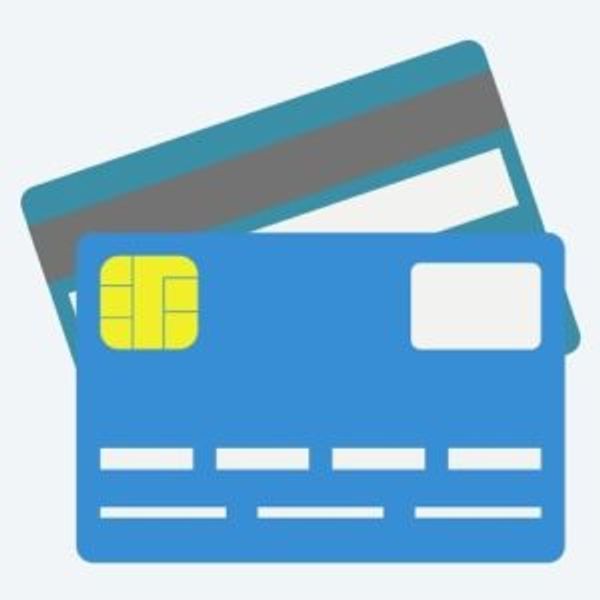
Travel money cards
Prepaid travel money cards are the modern equivalent to travellers cheques and have become very popular. This is largely due to the fact that they are totally separate from your regular bank account, allowing users to spend their balance freely without the worry of potential fraud or overspending. Preloaded with funds, travel money cards often help limit additional currency exchange charges. In addition to this, in spite of fluctuating currency rates, these cards let customers lock-in a favourable exchange rate ahead of time.

International bank accounts
If you are headed overseas for a sustained period of time, it could be more convenient and cost-effective to open a bank account in your destination country. You would be subject to the relevant security and eligibility checks but this decision pays off if you are making regular international money transfers or being paid in a different currency by foreign clients . Find out more about this option by reading our guide: How to Open a Bank Account Overseas.

Due to the growing alternative digital payment methods available nowadays, it seems this age-old travel money no longer measures up in terms of accessibility, cost and convenience. When travellers cheques were originally launched, ATM withdrawals were not commonplace for travellers, and digital point of sale systems had not been invented. Nowadays, it is easy to access local currency using an assortment of different payment methods such as debit or credit cards, travel money cards or money transfer apps .
The best option for anyone who is reluctant to use their debit or credit card overseas, would be to use a prepaid travel money card. Prepaid travel money cards are a safer and more widely used alternative to travellers cheques, and customers do not need to seek out a bank to use them, are not required to sign for each transaction and security measures in place are far more advanced. This method enables customers to secure multiple foreign currencies, locking in the optimum exchange rate for your currency pairing ahead of your trip abroad. Use our comparison tool to ensure you receive the most competitive exchange rates for your international money needs.
Related content
Related content.
- A Guide to Travel Money Cards Travel money cards are a popular payment method for individuals headed abroad. Customers will load funds onto the card, using the money as foreign currency when overseas, much like a debit card is used at home. Also known as travel money prepaid cards or currency cards, they facilitate free foreign transactions and overseas ATM withdrawals. January 16th, 2024
- UK Passports Offer Better Travel Freedom Since Brexit The Henley Passport Index is an annual research project that evaluates the relative power of passports from 199 countries. It determines how many locations each passport allows its holders to access visa-free or with visa-on-arrival, creating a global ranking. June 5th, 2023
- Revealed: Summer Cruises Increase your CO2 Emission by 4700% per KM vs Train Travel Travelling by cruise ship rather than train this summer could increase passengers’ CO2 emissions each kilometre by 4716%, MoneyTransfers.com can reveal. June 5th, 2023
- Cheapest European city breaks on the British government’s exemption list The study incorporated numerous factors across a variety of areas including: February 15th, 2023
- 10 Years of Data Predicts the Go-to Holiday Destinations for Brits Now COVID Is Over To establish the expected changes to tourism and GBP(£) spend abroad going forwards, MoneyTransfers.com analysed 10 years' worth of UK travel data from the Office for National Statistics (ONS) - 2009 - 2019, to discover and predict where Brits will be travelling to in the next 10 years now that travel is well and truly back on again since Covid! February 19th, 2024
Contributors

April Summers
- Moscow Tourism
- Moscow Hotels
- Moscow Bed and Breakfast
- Moscow Vacation Rentals
- Flights to Moscow
- Moscow Restaurants
- Things to Do in Moscow
- Moscow Travel Forum
- Moscow Photos
- All Moscow Hotels
- Moscow Hotel Deals
- Things to Do
- Restaurants
- Vacation Rentals
- Travel Stories
- Rental Cars
- Add a Place
- Travel Forum
- Travelers' Choice
- Help Center
changing currency/travellers cheques - Moscow Forum
- Europe
- Russia
- Central Russia
- Moscow
changing currency/travellers cheques
- United States Forums
- Europe Forums
- Canada Forums
- Asia Forums
- Central America Forums
- Africa Forums
- Caribbean Forums
- Mexico Forums
- South Pacific Forums
- South America Forums
- Middle East Forums
- Honeymoons and Romance
- Business Travel
- Train Travel
- Traveling With Disabilities
- Tripadvisor Support
- Solo Travel
- Bargain Travel
- Timeshares / Vacation Rentals
- Central Russia forums
- Moscow forum

How easy is it to exchange US dollars for local currency.
Are there readily available ATMs for cash withdrawal on credit cards?

Since you've you used the word cheque can I assume your English? Yes you can take US dollars or euros and exchange them for roubles, but unless they're your local currency I wouldn't bother. If you arrive at Domodedovo airport as you clear customs there's 2 ATM machines about 15 metres on your left one of which is a Barclay's bank machine. A little further on the right there's an exchange bureau, but rates aren't as good as you'd get in the city.

Plz read Top Questions at the top right of this page re: money...forget money exchange, go with ATMs...but read the background first...it will answer ALL of your questions...in fact, check this reference stuff out overall, as well as all the excellent links on the left of this page...

No need for the trvl checks. Exchange stations at all airports I have been in. All Russian ATM machines I have seen will have a screen that pops up with an english button on it. As easy to use as any other, in any country. Some of the old ones even had a actual English button on the side? Wow. AIM.
Note - I might avoid using ATM to get cash on a credit card...from what I know, you really can get whacked doing this. If possible, use a debit card...all of this is covered in Top Questions...top right of this page.,..

Atm's are the way to go.
IF you bring cash to exchange, they MUST be NEW, FRESH-lokking bills otherwise they won't except them. THis will frustrate you to no end.
So- ATM forst choice
2nd- bring US dollars -keep them NEW, do NOT bend/fold the bills or no one will take them.
Have fun. ;-)

lots of places to change cash into rubles. the airport having the worst rate i saw. some of my bills were used and/or folded but in excellent shape and were taken with no issues several places.
travelers checks have become problematic just about anywhere i go. i no longer use them.
i also used my credit card a few places without problems. looked at my statement today and the charge amount was reasonable. be sure your card does not charge extra fees or treat these exchanges as a cash advance and inform them where you will be traveling.
This topic has been closed to new posts due to inactivity.
- travel to moscow yesterday
- Planning trip to Russia Apr 28, 2024
- Train Booking Moscow to St. Peter Apr 24, 2024
- SIM card. Russian SIM cards, do they still work in the UK? Apr 09, 2024
- Union Pay debit card Mar 27, 2024
- Russian trying to book a hotel in Jerusalem Mar 14, 2024
- Dual Citizen Arrested in Russia Mar 12, 2024
- about clothes Feb 27, 2024
- NOTE - border crossing from Finland into Russia closed Feb 09, 2024
- Snow boots in Red Square Feb 04, 2024
- Travelling to Moscow & Murmansk with toddle in winter Feb 02, 2024
- Anyone traveling from London to Moscow this week ? Jan 27, 2024
- Booking accommodation Jan 11, 2024
- Traveling friends (Designers preferred) :) Jan 05, 2024
- Moscow to St Petersburg train or air?? 32 replies
- New Sapsan Express Train from Moscow to St Petersburg 18 replies
- New year's in moscow 8 replies
- Hop on Hop Off Bus Tour 5 replies
- How do you purchase Bolshoi Ballet tickets at a great price? 2 replies
- Select-a-room.com Are they legitimate? 3 replies
- Weather Moscow and St. petersburg in May 8 replies
- Night train to St Petersburg 3 replies
- ATM Access 12 replies
- Visa needed if on layover at Moscow Airport??????? 15 replies
- Where can I get initial answers to ANY question?
Capital One Main Navigation
- Learn & Grow
- Life Events
- Money Management
- More Than Money
- Privacy & Security
- Business Resources
All about traveler’s checks, plus modern alternatives
January 18, 2024 | 1 min video
Getting ready to travel? One thing to think about is how you’ll make purchases while you’re away. Traveler’s checks aren’t as common as they used to be. So you might want to consider modern alternatives that may offer the advantages of traveler’s checks and more.
Read on to learn more about the ins and outs of traveler’s checks. And find out about other options—for example, credit cards, prepaid cards and mobile wallets—that could help make the most of your trip.
Key takeaways
- Traveler’s checks are paper documents that can be exchanged for local currency or used to buy goods and services abroad.
- Traveler’s checks feature unique serial numbers, making them replaceable if they’re lost or stolen.
- Fees may apply when purchasing and exchanging traveler’s checks.
- There are modern alternatives to traveler’s checks that you may find more convenient.
Earn 75,000 bonus miles
Redeem your miles for flights, vacation rentals and more. Terms apply.
What is a traveler’s check?
A traveler’s check is a paper document you can use for making purchases when you’re traveling, typically in other countries. It can be used as cash or a regular check.
Traveler’s checks—you may also see them referred to as “cheques”—are generally printed with a unique serial number. This means you may be able to get a refund if your checks are lost or stolen. The checks are usually available in set denominations—$20 and $50, for example.
How do traveler’s checks work?
Traveler’s checks may be accepted at participating merchants like hotels, restaurants and stores. Just keep in mind that there could be fewer participating merchants than there used to be.
When you purchase your checks, you may notice that they have a space for two signatures:
- First signature: You might be asked to sign each of your traveler’s checks when you buy them. If not, you may want to sign them as soon as possible.
- Second signature: You’ll usually sign your traveler’s checks again when you’re making purchases.
This dual signature method is meant to provide extra security and ensure that only the purchaser is able to use them. The merchant can verify that the second signature matches the first.
How to cash in traveler’s checks
You can use traveler’s checks like cash to pay for goods and services at participating merchants. You’ll typically sign the check in front of the merchant at the time of the purchase.
While traveling, you may also be able to redeem your traveler’s checks for local currency at financial institutions or your hotel.
Potential fees associated with traveler’s checks
It’s possible that certain fees may apply to traveler’s checks. For example, you may need to pay a fee when you purchase them or when you exchange them for currency once you get to your destination. There might also be a fee for depositing unused checks into your bank account.
Where to get traveler’s checks
While traveler’s checks might be harder to find than they used to be, they’re still available. You may be able to purchase them at some banks, credit unions and travel-related service organizations.
Pros and cons of traveler’s checks
Take a look at some of the potential pros and cons of traveler’s checks:

When to use a traveler’s check
You might consider using traveler’s checks in certain situations, including:
- When you don’t have a credit or debit card. Some people may prefer to travel using modern payment options like credit and debit cards. But if you don’t have either, you may find traveler’s checks to be an acceptable alternative.
- When you can’t access an ATM. If you find yourself in a place that doesn’t have an ATM on every corner, you can instead use your checks at merchants that accept them.
- When you want to exchange them for local currency. When you get to where you’re going, you might want to have some local currency on hand. You may be able to exchange your traveler’s checks for currency at certain banks or other financial institutions.
Modern alternatives to traveler’s checks
There are a number of alternatives to traveler’s checks—options you may find faster, easier and more convenient. Here are a few to consider when you’re comparing your choices:
Credit cards
Carrying a credit card may be easier than carrying traveler’s checks. Plus, credit cards can be helpful for making large and online travel purchases like plane tickets and hotel reservations. That’s especially true with travel credit cards , which you could use to earn rewards on travel-related purchases.
Some credit cards may also come with benefits that could be useful while traveling. They might include things like protection from unauthorized charges and the ability to use a mobile app to track your purchases .
Keep in mind that foreign transaction fees may come into play when you use your credit card overseas. While this fee might vary between credit card companies, it could generally be in the range of 1%-3% of your purchase. You may also be charged a currency conversion fee. This fee is often part of a foreign transaction fee.
Some companies don’t charge foreign transaction fees. For example, none of Capital One’s U.S.-issued credit cards charge this fee. View important rates and disclosures .
If you’re traveling with your credit card, your credit card issuer may want to be alerted before you go. That’s because it might flag your purchases as fraudulent if it notices purchases made in an unfamiliar location. Thanks to the added security of its chip cards, Capital One doesn’t require this notification.
See if you’re pre-approved
Check for pre-approval offers with no risk to your credit score.
Debit cards
When you’re traveling, a debit card can be just as easy to carry around as a credit card. And like a credit card, it can help protect against fraud.
The big difference: A credit card lets you “borrow” money for purchases, while a debit card uses the money in your checking account to make purchases.
It may be helpful to carry a debit card when you’re visiting a country that generally favors cash transactions. In that case, you could use your debit card at an ATM to get cash once you’ve reached your destination. And that may be safer than bringing cash with you and exchanging it for local currency once you’ve arrived.
Keep in mind that you could be charged ATM fees when you use a debit card abroad. According to the Consumer Financial Protection Bureau (CFPB), some banks and credit unions don’t charge customers a fee for using their ATMs. But they might charge you if you’re not a customer—and that could be in addition to a fee charged by the operator of the ATM.
Also, be mindful that some banks may charge a foreign transaction fee when you make purchases abroad with a debit card. You may also be charged a currency conversion fee—often, this fee is folded into the foreign transaction fee.
Some banks, though, don’t charge foreign transaction fees. For example, Capital One doesn’t charge this fee for its 360 Checking account .
If you take a debit card on your travels, your bank may ask you to notify it beforehand. That’s because it could notice transactions made in an unfamiliar location and potentially freeze your account. Capital One doesn’t require this notification , thanks to the added security of your chip card.
Prepaid cards
Like credit cards and debit cards, prepaid cards may be easier to carry around than cash. They may also offer some protection against loss, theft or fraud once you register them.
But with a prepaid card, you don’t “borrow” money like you do with a credit card—or use money from your checking account, like with a debit card. Instead, you typically add money to a prepaid card before using it.
According to the CFPB, there are a few ways you can add funds to a prepaid card. For example, you can transfer money from your checking account or load funds at some retailers or financial institutions.
You might be charged one or more fees for using a prepaid card. The CFPB notes that if you get your prepaid card from a retailer, you should find a summary of fees on the card’s packaging. If you get your card from a different provider—online or over the phone, for example—the provider needs to share this information on paper or electronically.
Mobile wallet
You’ll probably have your phone with you when you’re traveling, right? Using a mobile wallet to make purchases is another modern alternative to traveler’s checks.
A mobile wallet is essentially a digital version of your real wallet. Depending on the wallet, you may be able to store things like credit cards, debit cards, prepaid cards, boarding passes, hotel reservations, event tickets and other types of personal data.
Mobile wallets can be convenient, allowing you to make quick and easy payments using your phone or other mobile device when you’re on the go. And they typically use advanced technology that prevents your actual account numbers from being stored in the wallet.
There are lots of mobile wallets to choose from. Researching your options could help you see which will work best while you’re traveling. Keep in mind, some merchants might not take mobile wallet payments.
Traveler’s checks in a nutshell
Traveler’s checks can be a helpful way to pay for things abroad, but there are also more modern options available today, like credit cards, debit cards, prepaid cards and mobile wallets. And with a travel credit card, you could earn rewards on your travel-related purchases.
Ready to upgrade the way you pay before your next trip? Compare Capital One travel credit cards today to find the best option for you, no matter where you’re headed.
Related Content
How do travel credit cards work.
article | February 8, 2024 | 7 min read
Should you send a credit card travel notice?
article | April 25, 2024 | 3 min read
Foreign transaction fees: What you need to know
article | August 10, 2023 | 8 min read

London Business Mag is the best UK blog for discovering more cool stuff on the internet.

What is Travellers Cheque? Get Ready to Travel
- by Lucy James
- March 9, 2023
- 6 minutes read
Table of Contents
Traveller’s cheques are a popular form of payment for tourists visiting different countries. They are convenient, fast, and relatively safe. In this blog post, we’ll explain what traveller’s cheques are, how they work, and some of the benefits they offer. We’ll also provide tips on how to use them when travelling and avoid any potential scams or pitfalls. So whether you’re planning a trip abroad or want to know more about this convenient and safe payment, read on to learn everything you need about traveller’s cheques.
What is Travellers Cheque?

A Travellers Cheque is a preprinted, fixed-amount cheque issued by banks and other financial institutions to individuals or businesses who travel abroad. It can be used to pay utility bills, purchase goods, and withdraw money at ATMs in various countries worldwide. These cheques are typically issued with a set amount of money printed on them. The cheques can be cashed anywhere that accepts cheques as payment.
Travellers’ Cheques are generally safer than cash since they do not have to be physically transported and can be easily accessed when needed. These cheques have several advantages over cash, such as the ability to make payments without fear of theft or loss. They also provide greater security over cash since they cannot quickly convert into cash like paper money can.
When using a Travellers Cheque, the most important thing is to avoid paying higher fees than you would have with cash. For example, if you need to withdraw money from an ATM overseas, look for a traveller’s Cheque that has the lowest fees possible. You can also avoid having your account information stolen or being hit with fraud charges if you use a secure website or app when making payments online through a Travellers Cheque.
How Does Travellers Cheque Work?

A traveller’s cheque is a cheque that can be used as a substitute for cash when travelling. They can be used to pay for goods and services or to withdraw cash from an ATM.
Traveller’s cheques are usually issued by banks or other financial institutions and can be bought in a variety of currencies. When you purchase a traveller’s cheque, you will need to sign it and write the amount of money you want to spend in the currency you are using. You will also need to present your ID when cashing them in.
When using a traveller’s cheque, you should keep track of the serial numbers in case they are lost or stolen. To cash them in, you will need to go to a bank or other financial institution that accepts them. The teller will verify your signature and ID and then exchange the cheque for cash.
How to Use a Travellers Cheque?

To use your traveller’s cheque, simply present it at a store or restaurant as you would cash. You will need to sign the back of the cheque, and the amount will be deducted from your total balance. Be sure to keep track of how many traveller’s cheques you have used, so you don’t accidentally spend more than you have!
Where to Get a Traveller’s Cheque?

Traveller’s cheques are a great way to ensure you can access funds while travelling. They can be used to pay for accommodation, meals, and other expenses. You can get traveller’s cheques in a few different places, including post offices, banks, and travel agents. Here is a bit more information about each option,
Post Office: Traveller’s cheques can be purchased at most post offices. You will need to fill out a form and show your ID. The process is usually quick and easy.
Bank: Many banks offer traveller’s cheques as well. The process is similar to purchasing them at the post office, but you may need to make an appointment in advance.
Money Exchange Offices: These offices typically offer competitive rates for exchanging currency. They may also sell traveller’s cheques.
Travel Agents: Travel agents are a good resource for information about traveller’s cheques. They can often help you find the best deal on exchanging currency or purchasing traveller’s cheques.
Can I Cash Travellers Cheques at the Post Office?

Post offices in the United Kingdom accept Travellers’ Cheques as payment for goods and services. You can cash your Travellers Cheques at the post office, but you will have to pay a fee of 1% of the face value of the cheque. Additionally, you may have to meet other specific requirements, such as providing identification documents verifying your identity.
If you wish to cash your Travellers Cheques in another country, you may need to meet additional requirements, such as having the funds available in the currency of the country. In some cases, it may be possible to convert your cheque into another currency and then cash it in that country. However, this process is subject to applicable laws and regulations and should be done with caution.
What are the Benefits of Travellers Cheques?

Traveller’s cheques have many benefits, which is why they are a popular choice for travellers. One of the main benefits is that they are a safe and secure way to carry money when travelling. Traveller’s cheques can be replaced if they are lost or stolen, so you don’t have to worry about losing all your money if something happens to them.
Another benefit of traveller’s cheques is that they can be used in a variety of different countries. You don’t have to worry about whether or not a particular country will accept them, as most places that deal with foreign currency will accept travellers’ cheques. This makes them very convenient for travellers who are visiting multiple countries on their trip.
Traveller’s cheques are also easy to use. You can simply hand them over to the cashier, and they will exchange them for local currency. There’s no need to worry about getting the correct change or having enough cash on hand, as the traveller’s cheque will be exchanged at the current rate.
Finally, traveller’s cheques don’t expire like other currency types. This means that you can keep them for future trips or even pass them on to someone else if you don’t need them anymore.
Alternatives to Travelers’ Cheques

1. Credit cards
Credit cards offer the convenience of not having to carry cash, and many credit card issuers offer rewards programs that can save you money on your travel expenses.
2. Debit cards
Debit cards can be used like credit cards, but funds are typically drawn from your bank account , so you’ll need to ensure you have enough money to cover your purchases.
3. Prepaid cards
Prepaid cards are another option for those who don’t want to carry cash or use a credit or debit card. These cards can be loaded with a set amount of money before you travel and then used like a debit or credit card to make purchases.
4. Mobile wallets
Mobile wallets are becoming an increasingly popular way to pay for purchases. They allow you to store your credit or debit card information on your phone and make payments by tapping your phone at participating retailers.
Traveller’s cheques are a popular way to make international payments. They are used by people who travel frequently and want to avoid the hassles and delays that can occur when making payments with traditional methods like wire transfers or cash. This guide will provide all the information you need about traveller’s cheques, from the basics to more in-depth explanations. We will also provide tips on how to use traveller’s cheques safely and effectively so that you can get the most out of this convenient and reliable payment method. If you’re interested in learning more about travellers’ cheques, be sure to check out this guide.
Share This Post:
How do travellers make money – 10 clever ways, why do irish travellers dress provocatively exploring irish traveller style, leave feedback about this cancel reply.
- Quality 5 4 3 2 1
- Price 5 4 3 2 1
- Service 5 4 3 2 1
Related Post

What Are Travellers Cheques? Understanding the Basics
- Skip to main content
- Skip to primary sidebar
Beyond Borders
Traveler’s Checks: Remitly’s 2024 Guide
Personal Finance
Last updated on April 30th, 2024 at 09:57 pm
When traveling, you have plenty of options for exchanging money and paying for goods and services. ATMs, credit cards, and money exchange counters are all more common than ever—but what about traveler’s checks? Are they still a good idea? If so, when?
You might be surprised to learn that traveler’s checks are still popular in certain cases. Read on to learn more about how they work, their pros and cons, and where to get them.

What is a traveler’s check?
Traveler’s checks were first issued in England by the London Exchange Credit Company in 1772. They were developed for use throughout Europe in 90 cities. It wasn’t until American Express created a large-scale system for traveler’s checks in 1891 that they started seeing widespread use internationally.
Today, traveler’s checks are checks issued by financial institutions to help travelers make payments abroad. The checks are exchanged for local currency or given to retailers for payment.
Travelers can purchase checks for fixed amounts in different denominations. The amounts range in value from $20 to $1,000.
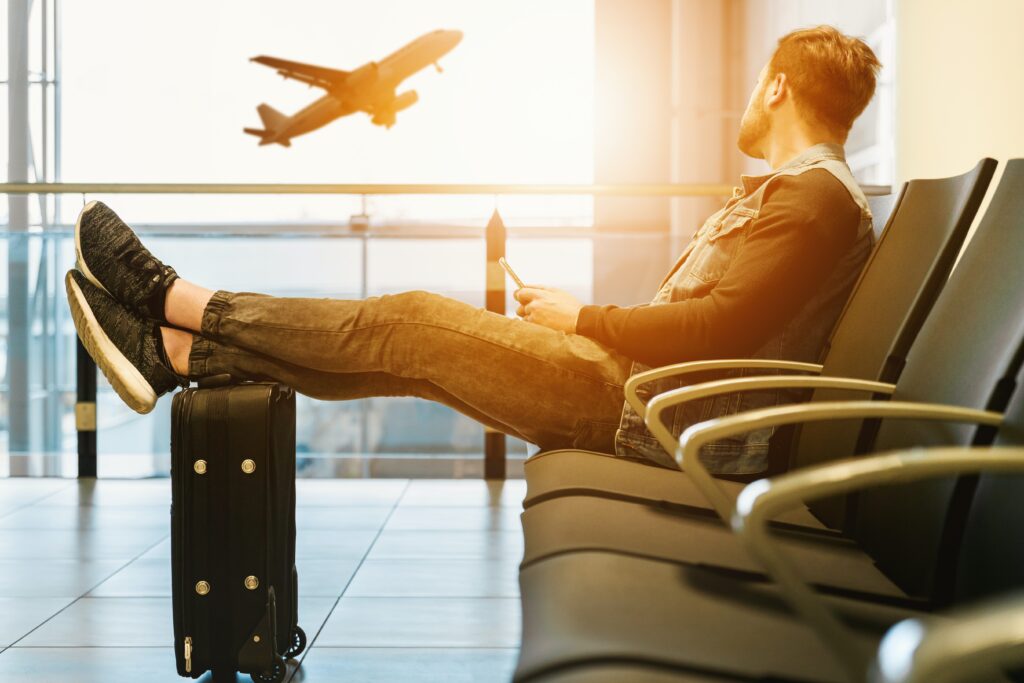
The difference between traveler’s checks, cashier’s checks, and money orders
Traveler’s checks, cashier’s checks, and money orders are three payment options travelers can use when traveling abroad. Each payment type is easy to use, but it may not be obvious how they differ and when it makes sense to use one over the other.
A cashier’s check is primarily used in your home country and made out to specific people or companies. Banks and credit unions can issue cashier’s checks if you have an account with them.
Traveler’s checks are ideal for people traveling outside their home country. They don’t need to be made out to specific individuals or companies. Ask your bank or credit union for a traveler’s check.
A money order is similar to a cashier’s check. It’s given to a payee to allow them to receive cash on demand. You can get money orders at the post office, grocery stores, and other similar businesses. Because you don’t need access to a bank account, money orders are the most helpful for people without banking access.
How traveler’s checks work
A traveler’s check works like cash. You get a set of checks from a financial institution in your chosen amount, then take the checks to shops or banks in the country you’re traveling in and exchange them for cash, goods, or services.
When should I use traveler’s checks?
Traveler’s checks are a great option if you’re in situations where you can’t use other payment methods. Although credit and debit cards offer convenience, not every traveler has them.
Another common situation is traveling to an area without ATMs. ATMs may be hard to find in some cities, and you’ll need a method of payment that locals accept.
Traveler’s checks are also a great way to access local currency. A traveler’s check will lock in the exchange rate and allow you to get a fixed amount of local currency when you’re in other countries.
Where to get traveler’s checks
Financial institutions, like banks and credit unions, are the most common places to get traveler’s checks from. American Express, Visa, and the American Automobile Association also offer traveler’s checks.
Keep in mind that traveler’s checks aren’t free. You’ll pay a fee between 1% and 4% in addition to the amount you want the checks in.
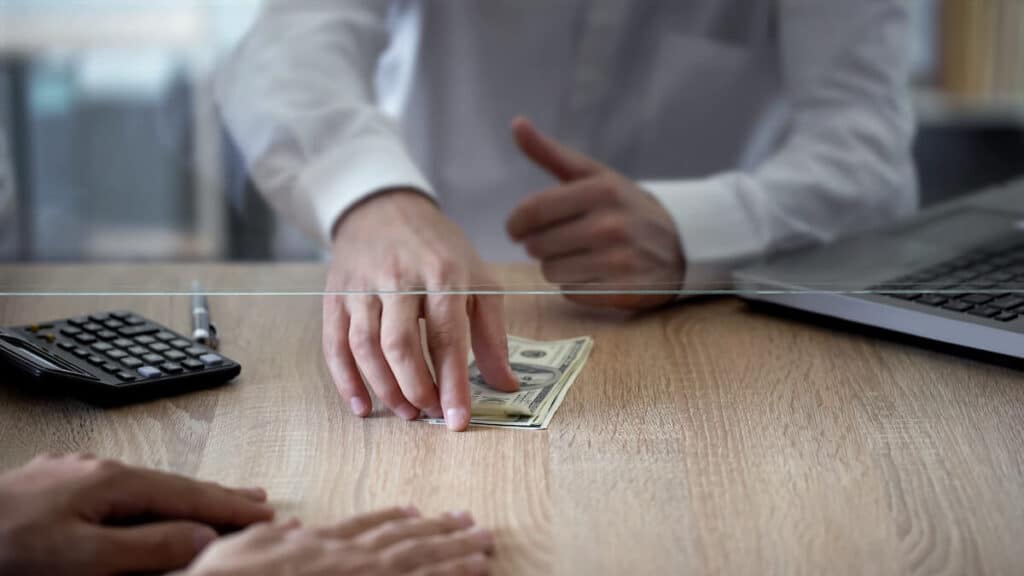
Where to cash traveler’s checks
The first places to look are locations that cater to travelers. Hotel or resort lobbies might offer traveler’s check services, and if they don’t, they may be able to point you in the direction of a business that can. Many banks also have locations worldwide that offer services for people using traveler’s checks.
It’s a good idea to research the area you’re staying in and the surrounding area to find businesses that accept checks.
What to do if your traveler’s checks get stolen
One of the wonderful things about traveler’s checks is that the issuer will replace lost or stolen checks.
If you lose your check or it gets stolen, the first step is to contact the provider you purchased the checks from. The provider will ask a few questions, such as the serial number of the checks, how the checks went missing, and other relevant information.
After you provide the information required, replacement checks will be issued, and your money will be refunded if someone else uses the checks.
Advantages of traveler’s checks
Although traveler’s checks are used less frequently these days, they do have a unique set of benefits that make them worthwhile.
- Traveler’s checks are easy to replace
- Traveler’s checks don’t expire
- Because the checks don’t have a link to your accounts, your identity stays safe
- You can exchange traveler’s checks for local currency
Disadvantages of traveler’s checks
Traveler’s checks can offer safety and ease of use to users, but there are a few downsides of using them.
- You have to pay an institution to issue a traveler’s check
- A limited number of institutions issue and accept traveler’s checks
- You must keep track of the serial numbers
Modern alternatives to traveler’s checks
Below are a few popular alternatives to traveler’s checks that allow you to spend money while you’re away from home.
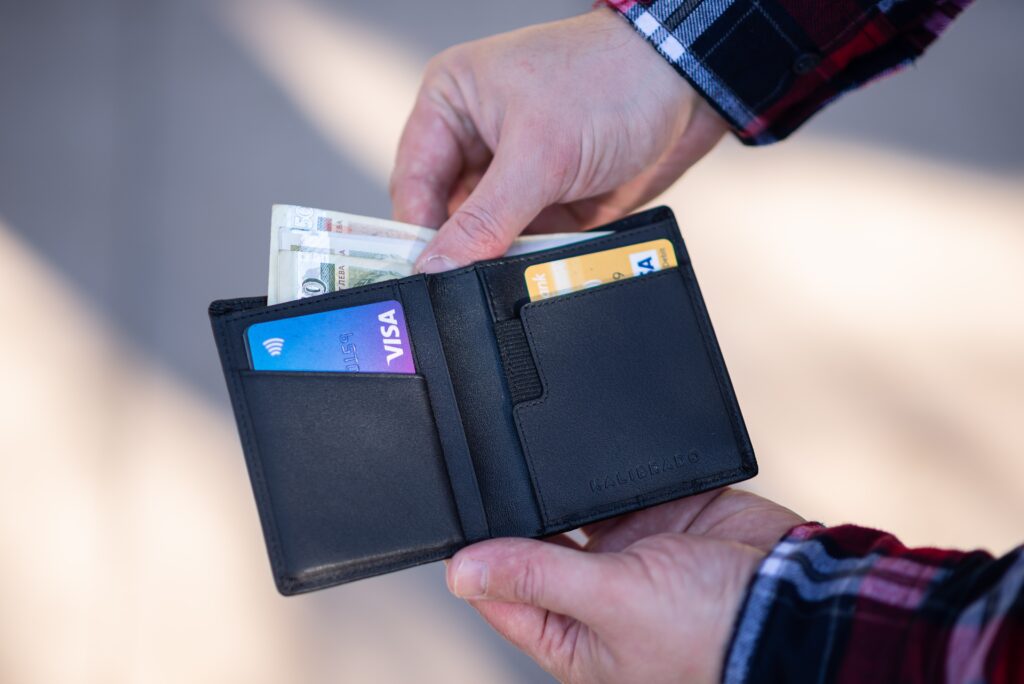
Credit cards
Credit cards are a popular way to spend money abroad. Instead of carrying cash and checks, you only need a piece of plastic to make purchases.
One of the great things about credit cards is security. Most credit cards have fraud protection that safeguards your money if your card gets stolen or lost.
Credit card companies also offer spending rewards . Reward cards give you points whenever you use them for purchases. Once you get enough points, you can redeem them for rewards or cash back.
One thing to be aware of with credit cards is foreign transaction fees. Some companies charge a percentage of your purchase when out of the country.
You’ll also need to let your credit card company know you plan to use your card out of the country. If you don’t, you risk having your card locked.
Debit cards
Debit cards offer the same conveniences as credit cards. Instead of carrying several checks, you only need a small card.
A debit card is also ideal if you would rather not borrow money. You won’t need to worry about extra bills and interest payments since you’re withdrawing cash from your checking account.
Another way to use a debit card is to get local currency . You can use your debit card at a local ATM and withdraw the local currency. Depending on your issuer, you may have fees with a cash withdrawal.
Like credit cards, you may also see foreign transaction fees if you use them when out of the country. These fees will depend on the bank you use.
An additional problem with debit cards is you’re out of luck if your card gets stolen. Because it’s your money and not borrowed on a credit card, you’ll need to wait for a bank to refund your cash.
Prepaid cards
A prepaid card is easier to carry than cash. Unlike credit and debit cards, prepaid cards have a specific amount loaded on the card. You pay to load the card with cash before you go on your trip.
Many consider this a safer option, since you only lose cash on a prepaid card if it’s lost or stolen. Nobody will have access to your bank or credit accounts.
One of the biggest issues with prepaid cards is their cost. You’ll pay a fee every time you load money on your card. These fees usually happen when you reload your card from a retail location.

Mobile wallet
A mobile wallet is a convenient way to make overseas purchases if you carry your phone everywhere, and you’re in a country where mobile payments are common.
Mobile wallets act like real wallets, allowing you to store digital versions of credit cards and debit cards without hauling the physical card with you.
The biggest plus of mobile wallets is convenience. You can easily pick which payment method you wish to use and pay by holding your phone to the payment system.
Because a mobile wallet is on your phone, you also benefit from your phone’s security. It’s not easy for thieves to use your mobile wallet if they can’t access your phone.
That said, mobile wallets are more common in urban areas and in certain countries. Don’t rely on one as your only form of payment when you travel.
- Skip navigation
- Find a branch
- Help and support
Popular searches
- Track a parcel
- Travel money
- Travel insurance
- Drop and Go
Log into your account
- Credit cards
- International money transfer
- Junior ISAs
Travel and Insurance
- Car and van insurance
- Gadget insurance
- Home insurance
- Pet insurance
Travel Money Card
- Parcels Online
For further information about the Horizon IT Scandal, please visit our corporate website
- Travel Money
A safe-to-use, prepaid, reloadable, multi-currency card that’s not linked to your bank account
No charges when you spend abroad*
Make contactless, Apple Pay and Google Pay™ payments
Manage your account and top up or freeze your card easily with our Travel app
*No charges when you spend abroad using an available balance of a local currency supported by the card.
Win £5000 with Post Office Travel Money Card
A chance to win £5000 when you top up a new or existing Travel Money Card*. Offer ends 12 May
*Exclusive to travel money cards. Promotion runs 4 March to 12 May 2024. 1 x £5,000 prize available to be won each week. Minimum equivalent spend of £50 applies.
Why get a Travel Money Card?
Carry up to 22 currencies safely.
Take one secure, prepaid Mastercard® away with you that holds multiple currencies (see ‘common questions’ for which).
Accepted in over 36 million locations worldwide
Use it wherever you see the Mastercard Acceptance Mark – millions of shops, restaurants and bars in more than 200 countries.
Manage your card with our travel app
Top up, manage or freeze your card, transfer funds between currencies, view your PIN and more all in our free Travel app .
It’s simple to get started
No need to carry lots of cash abroad. Order a Travel Money Card today for smart, secure holiday spending.
Order your card
Order online, via the app or pick one up in branch and load it with any of the 22 currencies it holds.
Activate it
Cards ordered online and in-app should arrive within 2-3 working days. Activate it by following the instructions in your welcome letter.
It’s ready to use
Spend in 36 million locations worldwide, and top up and manage your card in the app or online.
Stay in control
Manage your holiday essentials together in one place on the move, from your Travel Money Card and travel insurance to extras like airport parking.
New-look travel app out now
Our revamped travel app’s out now. It makes buying, topping up and managing Travel Money Cards with up to 22 currencies a breeze. Buying and accessing Travel Insurance on the move effortless. And it puts holiday extras like airport hotels, lounge access and more at your fingertips. All with an improved user experience. Find out what’s changed .
Order a Travel Money Card
Order your card online – or through the Post Office travel app – and we'll deliver it within 2-3 days. Just activate it and go.
Need it quick? Visit a branch
Pick up a Travel Money Card instantly at your local Post Office. Bring a valid passport, UK driving licence or valid EEA card as ID.
Need some help?
We’re here to help you make the most of your Travel Money Card – or put your mind at ease if it’s been lost or stolen
Lost or stolen card?
Please immediately call: 020 7937 0280
Available 24/7
To read our FAQs, manage your card or contact us about using it:
Visit our Travel Money Card support page
Common questions
How can i order my card.
There are three ways that you able to obtain a Travel Money Card, each very simple.
Please note, you must be a UK resident over the age of 18 to obtain a Travel Monday Card.
- Via our travel app: you can order and store up to three Travel Money Cards in our free travel app . Delivery will take 2-3 working days.
- Online: follow our application process to order your card online. Your card will take 2-3 working days to be delivered. Once it arrives you can link it to our Travel app to manage on the go.
- In branch: simply find a nearby Post Office branch and pop in to get your Travel Money Card there. Please remember to take a valid passport, UK driving licence or a valid EEA card in order to obtain your card, and you can take it away the same day.
Whichever way you choose to order your card, don't forget to activate it once it arrives. Full details of how to activate your card will be provided in your welcome letter, to which your card will be attached if it’s been sent in the post.
How do I use my card?
Travel Money Card is enabled with both chip & PIN and contactless, so you can make larger and lower-value value payments with it respectively. For convenience, you can also add it to Apple Pay and Google Wallet.
You can load it with between £50 and £5,000 (see more on load limits below). You can use it to pay wherever the Mastercard Acceptance Mark is displayed. And you can withdraw cash with it at over 2 million ATMs worldwide (charges and fees apply, see 'Are there top-up limits?' below).
Your Travel Money Card is completely separate from your bank account so it’s a safe and secure way to pay while you’re abroad.
How can I manage my card?
After you've activated your card, you can manage it using our travel app or via a web browser. You can check your recent transactions, view your PIN, transfer funds between different currency ‘wallets’, top up your card, freeze your card and more.
Our travel app brings together travel essentials including holiday money, travel insurance and more together in one place. As well as managing your Travel Money Card you can buy cover for your trip, access your policy documents on the move, book extras such as airport parking and hotels, and find your nearest ATM while overseas or Post Office branches here in the UK.
Which currencies can I use?
The Post Office Travel Money Card can be loaded with up to 22 currencies at any one time. You can top up funds on the card and transfer currencies between different ‘wallets’ for these currencies easily in our travel app or online.
Currencies available:
- EUR – euro
- USD – US dollar
- AUD – Australian dollar
- AED - UAE dirham
- CAD – Canadian dollar
- CHF – Swiss franc
- CNY – Chinese yuan
- CZK – Czech koruna
- DKK – Danish krone
- GBP – pound sterling
- HKD – Hong Kong dollar
- HUF – Hungarian forint
- JPY – Japanese yen
- NOK – Norwegian krone
- NZD – New Zealand dollar
- PLN – Polish zloty
- SAR – Saudi riyal
- SEK – Swedish Krona
- SGD – Singapore dollar
- THB – Thai baht
- TRY – Turkish lira
- ZAR – South African rand
What are the charges and fees?
Full details of our charges and fees can be found in our Travel Money Card terms and conditions .
The Post Office Travel Money Card is intended for use in the countries where the national currency is the same as the currencies on your card. If the currency falls outside of any of the 22 we offer on your card, you’ll be charged a cross-border fee. For example, using your card in Brazil will incur a cross-border fee because we do not offer the Brazilian real as a currency.
Cross border fees are set at 3% and are only applicable when you use your currency in a country other than the ones we offer.
For more information on cross border fees, please visit our cross border payment page.
There are no charges when using your card in retailers in the country of the currency on the card. This means that a €20 purchase in Spain would cost you €20 and will be deducted from your euro balance.
To avoid unnecessary charges to your card, wherever asked, you should always choose to pay for goods or withdraw cash in the currencies of your card. For example, if you are using the card in Spain you should always choose to pay in euro if offered a choice; choosing to pay in sterling (GBP) in this example would allow the merchant to exchange your transaction from euro to sterling. This would mean your transaction has gone through two exchange rate conversions, which will increase the total cost of your transaction.
For loads in Great British pounds, a load commission fee of 1.5% will apply (min £3, max £50). A monthly maintenance fee of £2 will be deducted from your balance 12 months after your card expires. Expiration dates can be found on your TMC; all cards are valid for up to 3 years.
A cash withdrawal fee will be charged when withdrawing cash from a UK Post Office branch or from any ATM globally that accepts Mastercard.
We have listed all available currencies and their associated withdrawal limits and charges below:
EUR – euro Max daily cash withdrawal: 450 EUR Withdrawal charge: 2 EUR
USD – US dollar Max daily cash withdrawal: 500 USD Withdrawal charge: 2.5 USD
AED – UAE dirham Max daily cash withdrawal: 1,700 AED Withdrawal charge: 8.5 AED
AUD – Australian dollar Max daily cash withdrawal: 700 AUD Withdrawal charge: 3 AUD
CAD – Canadian dollar Max daily cash withdrawal: 600 CAD Withdrawal charge: 3 CAD
CHF – Swiss franc Max daily cash withdrawal: 500 CHF Withdrawal charge: 2.5 CHF
CNY – Chinese yuan Max daily cash withdrawal: 2,500 CNY Withdrawal charge: 15 CNY
CZK – Czech koruna Max daily cash withdrawal: 9,000 CZK Withdrawal charge: 50 CZK
DKK – Danish krone Max daily cash withdrawal: 2,500 DKK Withdrawal charge: 12.50 DKK
GBP – Great British pound Max daily cash withdrawal: 300 GBP Withdrawal charge: 1.5 GBP
HKD – Hong Kong dollar Max daily cash withdrawal: 3,000 HKD Withdrawal charge: 15 HKD
HUF – Hungarian forint Max daily cash withdrawal: 110,000 HUF Withdrawal charge: 600 HUF
JPY – Japanese yen Max daily cash withdrawal: 40,000 JPY Withdrawal charge: 200 JPY
NOK – Norwegian krone Max daily cash withdrawal: 3,250 NOK Withdrawal charge: 20 NOK
NZD – New Zealand dollar Max daily cash withdrawal: 750 NZD Withdrawal charge: 3.5 NZD
PLN – Polish zloty Max daily cash withdrawal: 1,700 PLN Withdrawal charge: 8.5 PLN
SAR – Saudi riyal Max daily cash withdrawal: 1,500 SAR Withdrawal charge: 7.50 SAR
SEK – Swedish Krona Max daily cash withdrawal: 3,500 SEK Withdrawal charge: 20 SEK
SGD – Singapore dollar Max daily cash withdrawal: 500 SGD Withdrawal charge: 3 SGD
THB – Thai baht Max daily cash withdrawal: 17,000 THB Withdrawal charge: 80 THB
TRY – Turkish lira Max daily cash withdrawal: 1,500 TRY Withdrawal charge: 7 TRY
ZAR – South African rand Max daily cash withdrawal: 6,500 ZAR Withdrawal charge: 30 ZAR
Are there top-up limits?
Yes, all currencies have top-up limits and balances. See full information below, which is applicable to all currencies available on the Travel Money Card.
- Top-up limit: minimum £50 – maximum £5,000
- Maximum balance: £10,000 at any time, with a maximum annual balance of £30,000
- Read more Travel Money Card FAQs
Other related services

Knowing how much to tip in a café, restaurant, taxi or for another service can ...

Post Office Travel Money unveils the first Islands in the Sun Holiday Barometer ...

Long-haul destinations offer the best value for UK holidaymakers this year, ...
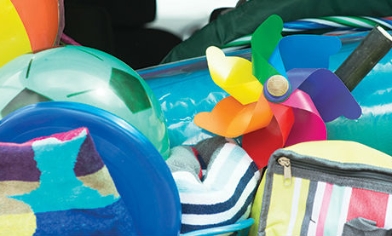
To avoid currency conversion fees abroad, always choose ‘local currency’ ...

If you’re driving in Europe this year, Andorra’s your best bet for the cheapest ...

One of the joys of summer are the many music festivals playing across the ...
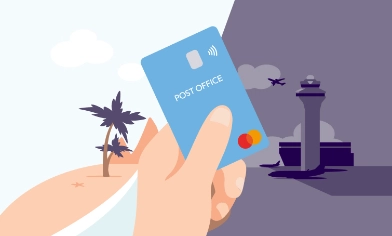
Prepaid currency cards are a secure way to make purchases on trips abroad. They ...

For the first time in 16 years of our reports, Lisbon is not only the cheapest ...

The nation needs a holiday. And, with the summer season already underway, new ...

Hoi An in Vietnam is still the best-value long haul destination for UK ...
Our annual survey of European ski resorts compares local prices for adults and ...
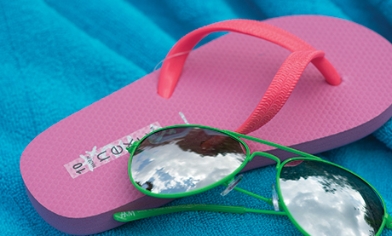
Travelling abroad? These tips will help you get sorted with your foreign ...
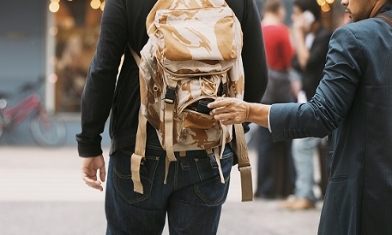
We all look forward to our holidays. Unfortunately, though, more and more ...

The nation needs a holiday, and Brits look set to flock abroad this year. The ...

Thinking of heading off to Europe for a quick city break, but don’t want to ...

Kickstarting your festive prep with a short getaway this year? The Post Office ...
Find out more information by reading the Post Office Travel Money Card's terms and conditions .
Post Office Travel Money Card is an electronic money product issued by First Rate Exchange Services Ltd pursuant to license by Mastercard International. First Rate Exchange Services Ltd, a company registered in England and Wales with number 4287490 whose registered office is Great West House, Great West Road, Brentford, TW8 9DF, (Financial Services Register No. 900412). Mastercard is a registered trademark, and the circles design is a trademark of Mastercard International Incorporated.
Post Office and the Post Office logo are registered trademarks of Post Office Limited.
Post Office Limited is registered in England and Wales. Registered number 2154540. Registered office: 100 Wood Street, London, EC2V 7ER.
These details can be checked on the Financial Services Register by visiting the Financial Conduct Authority website and searching by Firm Reference Number (FRN).

How to Phone and Send Post from Moscow
To be omnipresent in Moscow you’ll need wi-fi or cellular phone capabilities. It’s better to get a local SIM card to avoid high roaming costs. The best one is from Megafon, who offers “Mezhdunarodny” tarif with cheap calls abroad and inexpensive fast speed LTE (4G) internet (get a prepaid 3 gig pack for 10 eur). They also have lots of additional options you’d need to switch on to save money, so check out their English-language website. One thing to keep in mind is that all Russian cell phone operators have slightly higher tariffs if you travel outside of the city where you bought your SIM. So check out their roaming tariffs and buy the SIM in the region you’ll spend most of your time in or switch on the cheaper roaming options.
How to phone from Moscow
The phone code of Moscow is 495. If you phone inside Moscow , you should just dial the 7-digit number. If you phone to another country , dial 8, wait for a long tone, dial 10 (for international access), then the code of the country, of the city, and the phone number you need. If you phone to another town in Russia , dial 8, wait for a long tone, and then dial the code of the city, followed by the local phone number. If you phone to a mobile phone , which doesn't have a direct Moscow number, dial 8, wait for a long tone, and then dial the number (for example, 910 555-5555).
Using Public Phones
Most of the pay phones require a phonecard, which you can buy at any metro station's ticket office. Each phone has an instruction in English on the display and you can change the language of it by pressing the button "L". The telephone card - Tele`fonnaya `Karta - can be for 20 units (minutes) - 60 R ($2) or 50 units (one hour) - 105 R ($4). The public phones are usually located near or inside all metro stations and at the other popular places. It's possible to use those public phones for international calls too, but it's very expensive, better consider the options below.
How to communicate with the outside world?
First, you can phone from the hotel or hostel you're staying in. Usually hotels charge much more than it really costs, so it's not a very good idea. If you live in an apartment, the price would be around 20R ($0.7) a minute if the call goes through MGTS local provider (it will, in most cases). You can also go to the Tverskaya ulitsa, 7 (central telegraph, opened 24 hours) or to another telegraph office . You can order a telephone call or send a fax anywhere. A call to Western Europe is around 20 roubles (0.7$) a minute. For some reason, there are no special 'budget call centers' in Moscow as in some other countries. Another way to phone abroad is to make a collect phone call . In this case, you will not pay for the phone call, but the party you're phoning to will. You can do it by dialing AT&T access number in Moscow (755-5042 or 747-3323), dialing the number you wish to reach, waiting for an operator to answer (English-speaking only) and telling him / her you'd like to make a free phone call to this number. You will need to repeat the number again to the operator, then you'll be connected, the person you're phoning to will be asked if he's willing to pay a phonecall from Russia, and voila. The cheapest way to phone abroad , is to use a special telephone card for IP-telephoning . You can use these cards from any phone in Moscow, even public ones. Just dial the Moscow access number written on the card, switch to the tone mode (usually a * (star) button), dial your PIN and then the number you're calling. There are many companies selling those cards, such as Comstar (Maxicard) or Rinotel, besides they have an English-language menu to explain you what to do while calling. Those cards can be bought either directly from the providers or easier from the telecom shops (sa`lon s`vyazi - usually next to metro stations -- the places where cell phones and accessories are sold). Regarding the prices, IP-cards from MTU cost 150 R ($5) and one minute of speaking with US, Canada, Western Europe costs $0.2. Even if you're calling from a public phone, the phonecall will cost you the same $0.2, plus $0.07 a minute you'll have to pay for the payphone.
You can also buy phonecards online , this way you will be able to use your card instantly. WayToRussia.Net together with MasterBell offers this service to our readers through Way to Russia Budget Phonecards shop. The rates are $0.10 per minute if you call from Moscow abroad, and $0.02 per minute if you call from USA to Russia. The quality is perfect if you use the card from Russia or USA, but don't buy it if you intend to use it in a European country.
Here's a list of some IP telephony providers in Moscow. Rinotel. Address: Sofiyskaya embankment, #30/3, (zamoskvorechie area, south center, metro Tretyakovskaya). Phone: 792-5404, fax 792-5405, internet: www.rinotel.ru e-mail: [email protected] | Comstar. Address: Dmitrovsky pereulok, #3, build. 1. Contacts: tel 956-0000, fax 956-0707, internet: http://www.comstar.ru/
Using Mobile Phones in Moscow
All the operators have the same level of service and about the same prices: about $0.20 for a minute of a local call (incoming or outcoming), and $0.15 mobile to a mobile. Megafon offers calls to Europe and USA for only $0.35 / minute if you subscribe to one of their contract plans (starts from $35 US / month with 200 minutes included). Normally, you will be able to subscribe for a short period of time, because there are no 1-year minimum term contracts in Russia -- you can usually cancel with 1 month notice. To subscribe, you just can go to any telecom shop (there are many), pay a set-up fee ($30-$90) and a deposit $35-$40 which will directly go on your account, and you'll have a new SIM card and phone number. Just make sure your mobile isn't blocked by another provider. Once subscribed, if you want to add money to your account, you can buy a top-up card, which is sold in most shops.
Sending the Post in Russia
If you want to send something by post from Russia, you can do it either through the government post service or a courier service - the difference is the price and speed. State post service. The government post system in the whole Russia is unexpensive, not quality enough and slow, either if you send it inside or outside of Russia. Besides, sometimes the letters don't come at all. It'll be ok in the most cases with the parcels though.
How to send it. You should buy the post stamps at a post office, which you can find by Pochta sign. Post offices usually work monday - friday from 9.00 to 19.00 and saturday - 9.00 to 17.00, sunday is day off. The stamps you need to send a letter to Western Europe will cost around 12 R ($0.5). For that price your letter will arrive in 2-4 weeks. You can send your letter or postcard by putting them at any of the light blue post boxes on the streets or directly at the post office (better). Sending an average (around 500gm) parcel costs around $15 A more secure option is to go directly to the main post office of Moscow - Tsentralny Telegraph (Central Telegraph), it's on Tverskaya ulitsa, #7. It'll cost around $3 to send a letter from there and it'll take 2 weeks for it to arrive.
Courier services. It costs about $50 US to send a letter with a major courier service (see contacts below) from Russia to Europe, and about $70 US to the USA. It should take about 1 to 3 business days to arrive. DHL Express. Address: 8 Marta Ul., #14. Contacts: tel 956-1000, 961-1000, fax 974-2105 internet: http:// www.dhl.ru Federal Express . Address: Aviatsionny pereulok, #8/17. Contacts: tel 234-3400, fax 234-9942. email: [email protected] internet: http://www.fedex.com TNT. Address: Svobody Ul., #31. Contacts: tel 797-2777, fax 797-2778, email: [email protected] internet: http://www.tnt.com UPS. Address: Bolshoi Tishinsky pereulok, #8, build. 2. Contacts: tel 961-2211. fax 254-4015. internet: http://www.ups.com
Comments, Questions, Feedback?
Most recent articles:.
2018 Primetime Emmy & James Beard Award Winner
R&K Insider
Join our newsletter to get exclusives on where our correspondents travel, what they eat, where they stay. Free to sign up.
A History of Moscow in 13 Dishes
Featured city guides.

IMAGES
VIDEO
COMMENTS
Win £5000 with Post Office Travel Money Card. A chance to win £5000 when you top up a new or existing Travel Money Card*. Offer ends 12 May. Top up now. Order now. *Exclusive to travel money cards. Promotion runs 4 March to 12 May 2024. 1 x £5,000 prize available to be won each week. Minimum equivalent spend of £50 applies.
New-look travel app out now. Our revamped travel app's out now. It makes buying, topping up and managing Travel Money Cards with up to 22 currencies a breeze. Buying and accessing Travel Insurance on the move effortless. And it puts holiday extras like airport hotels, lounge access and more at your fingertips. All with an improved user ...
Call American Express Customer Service 24/7 at 1-800-221-7282. or find additional contact numbers based on your location. American Express stopped issuing Travelers Cheques, so they're no longer available for purchase. Support is available by phone and the American Express website for customers to redeem valid. Travelers Cheques.
Learn how to exchange your travellers cheques to cash at your local Post Office or other providers. Find out the advantages and disadvantages of travellers cheques, the alternatives to taking them, and the best exchange rates for travel money.
The key advantage of travellers cheques is that they are safer to carry around than cash. Provided you have noted down the serial number of each cheque you were originally issued, you will be able to get them replaced should they be stolen or lost. Remember to keep your note of the serial numbers separate from the cheques themselves.
Traveler's Check: A traveler's check is a medium of exchange utilized as an alternative to hard currency . Travelers often used traveler's checks on vacation to foreign countries. In 1891 ...
When using travellers' cheques, you may encounter various fees, typically ranging from 2-3% in commission charges. Additionally, handling fees and cashing-in charges may apply. These fees can vary significantly depending on the provider, country of use, and the specific bank, retailer, or agent. It's always recommended to inquire about these ...
Designed to facilitate payments from one person to another, using different currencies, travellers cheques were initially seen as a more practical way for individuals to carry their spending money. Travellers cheques had their heyday in the late 20th century, reaching peak popularity in the mid-90s, before alternatives such as credit and debit ...
The post office is a good place to start when looking for travellers cheques. The post office offers a variety of services, including currency exchange and money transfer. In addition, the post office offers a wide range of currencies, so you are sure to find the right one for your needs. 2. Banks are another option for obtaining traveller's ...
Travel money help and support. Read our travel money FAQs or contact our team about buying currency online or in branch: Visit our travel money support page. Order foreign currency online and collect from a Post Office bureau de change near you or choose next day home delivery. 80 currencies available - order today!
Read our travel money guide and find out where to go for foreign exchange and find out if travellers cheques are a safer alternative. MoneySuperMarket ... It's worth comparing these offers with those available from bureau de change, travel agents, and the Post Office. Some banks and building societies will occasionally offer promotional rates ...
Got a query or want to give us some feedback, it's easy to get in touch. Phone: Ring our dedicated Travel Money UK-based call centres, on 0345 8500 900, Monday to Saturday from 8:30am to 5:30pm Email: Alternatively email us at [email protected]
It's a good idea to have small- and medium-denomination notes rather than large. Keep small notes at hand for tips. Having small notes before your trip will make it easier to tip taxi drivers or hotel porters when you arrive. Check your guide book or ask your holiday rep how much to tip. Check that your bank card works abroad.
Answer 1 of 7: How easy is it to exchange US dollars for local currency. Are there readily available ATMs for cash withdrawal on credit cards?
It can be used as cash or a regular check. Traveler's checks—you may also see them referred to as "cheques"—are generally printed with a unique serial number. This means you may be able to get a refund if your checks are lost or stolen. The checks are usually available in set denominations—$20 and $50, for example.
Post Office: Traveller's cheques can be purchased at most post offices. You will need to fill out a form and show your ID. The process is usually quick and easy. Bank: Many banks offer traveller's cheques as well. The process is similar to purchasing them at the post office, but you may need to make an appointment in advance.
It's quick and easy to cash your unused American Express Travellers Cheques - simply bring them to your nearest NM Money or Eurochange branch (we have over 240 across the UK), and then the process will take just a few minutes. ... (FRN 534703) at fca.org.uk/register. Eurochange Ltd is registered in England and Wales with registered office ...
Financial institutions, like banks and credit unions, are the most common places to get traveler's checks from. American Express, Visa, and the American Automobile Association also offer traveler's checks. Keep in mind that traveler's checks aren't free. You'll pay a fee between 1% and 4% in addition to the amount you want the checks in.
18 October 2021 at 10:30AM. During a recent tidy up at home I discovered that I still have some travellers cheques from the 1990s. I have tried to redeem that at my bank, but they refused. I got the same response from the Post Office and from a travel agent. Where can I get them redeemed ?
Post Office Travel Money Card is an electronic money product issued by First Rate Exchange Services Ltd pursuant to license by Mastercard International. First Rate Exchange Services Ltd, a company registered in England and Wales with number 4287490 whose registered office is Great West House, Great West Road, Brentford, TW8 9DF, (Financial ...
You should buy the post stamps at a post office, which you can find by Pochta sign. Post offices usually work monday - friday from 9.00 to 19.00 and saturday - 9.00 to 17.00, sunday is day off. The stamps you need to send a letter to Western Europe will cost around 12 R ($0.5). For that price your letter will arrive in 2-4 weeks.
1: Off-kilter genius at Delicatessen: Brain pâté with kefir butter and young radishes served mezze-style, and the caviar and tartare pizza. Head for Food City. You might think that calling Food City (Фуд Сити), an agriculture depot on the outskirts of Moscow, a "city" would be some kind of hyperbole. It is not.